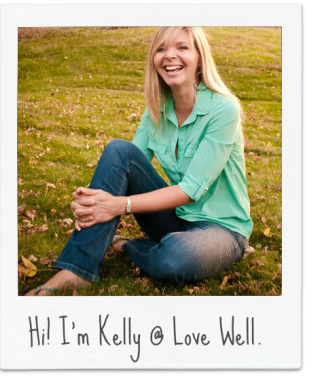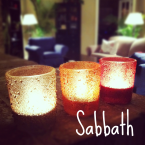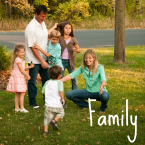
If you read Laura Ingalls Wilder iconic "Little House in the Big Woods" at some point in your life, you probably remember the following story.
Pa told it to Laura one Sunday, when she dared to run and play with her dog Jack after dinner, before the sun had set, when Sabbath was still being honored and no fun or work allowed. Rather than punish her, Pa took her in his arms and told her about a Sunday when her grandpa and his two older brothers could not endure the continual sitting and quiet Sabbath seemingly required either. The day before, they had finished work on a beauty of a new sled. But since they finished it after dark, they hadn't been able to use it. And despite their noses being in catechism books and their bodies being on a bench besides their father reading the Bible, all they could think about was that sled. So when they saw their father fall asleep, with his head on the back of the chair, the boys silently filed out of the room, out to the shed where their new sled sat waiting. They intended to slide it just once, silently, and then head right back inside. But as fate would have it, a big black pig stepped into their path just as they neared their house, and since they couldn't stop or turn, that pig ended up on the sled with the boys. "Squeeeee! Squeeee!" went the pig, the rest of the way down the hill. The boys could see their father standing in the window, watching them, as they swooshed past the house carrying the screeching hog. When the ride was over, the boys put the sled away, slunk back indoors to find their father reading his Bible. No words were exchanged. But that night, when the sun set on the Sabbath, he took them out to the woodshed where he "tanned their jackets."
Pa ended by saying, "So you see, Laura and Mary, you may find it hard to be good, but you should be glad that it isn't as hard to be good now as it was when Grandpa was a boy."
We laugh, but it has a ring of truth to it, even today in 2014. Sabbath may no longer demand 24 hours of sitting still. But it can feel like one more task on our to do list, one more badge we need to earn. Stifling. Boring. Rigid. A burden.
But that, my friends, is not Sabbath. That is the bare bones of the animal, picked dry and brittle by the devouring vultures of legalism. True Sabbath is a lithe, laughing, gentle beast, that woos us to come and play.
Sabbath is supposed to be the best day of the week, not the worst.
I know this, because three years ago, God gave me a year to study and practice and absorb what He means by Sabbath. To get the healing shalom of it right down into my marrow. It has become gift to me. Grace. I do not always observe it well, and certainly, I do not do it to the extent I would wish. But I do live by its rhythm and rhyme. And it has changed me.
So this Lent, if you want to make Sabbath part of your commitment, I want to bless you and give you a high five and a hug and say, "It's worth it. It's worth it."
And if I may humbly direct your gaze to the aspect of Sabbath that most surprised me, consider this: Sabbath is about delight.
Dan Allendar, in his book Sabbath, writes. "Sabbath is our play day - not as a break from the routine of work, but as a feast that celebrates the superabundance of God's creative love."
Does that make your breath catch a little? Sabbath is designed to restore us, to renew us. To let us set aside the drudgery of the every day and allow ourselves to wallow in delight.
So I ask the question: What delights you? What restores you?
And while you ponder the answer, let me stir this into the mix. In my favorite Sabbath book, author Mark Buchanan said Sabbath's golden rule is "to cease from that which is necessary." Don't do what you ought to do. If it something you must do, that you feel an obligation toward, then it is work and not restorative. Choose something that you want to do, something that makes you come alive.
Sabbath is a reprieve from what you ought to do, even though the list of oughts is infinitely long and never done. Oughts are tyrants, noisy and surly, chronically dissatisfied. Sabbath is the day you trade places with them: they go into the salt mine, and you go out dancing. It's the one day when the only thing you must do is to not do the things you must. You are given permission - issued a command, to be blunt - to turn your back on all those oughts. You get to willfully ignore the many niggling things your existence genuinely depends on - and is often hobbled beneath - so that you can turn to whatever you've put off and pushed away for a lack of time, lack of room, lack of breath. You get to shuck the have-tow and lay hold of the get-tos.Keep in mind: what restores me may not restore you. And what restores me this week may smell like an "ought-to" next week. Many Sabbath celebrations are built on routine: the lighting of candles, the breaking of bread, the singing of praises and wonder. But there is also a continual discovery to it, a creativity that all things made new.
A few practical tips:
1. It doesn't have to be Saturday.
For centuries, the Jewish people have celebrated Sabbath from sundown Friday to sundown Saturday. After Jesus' resurrection, the early church moved the celebration to Sunday. But let's be honest: for many of us, Sundays are not a restful day. So don't celebrate Sabbath then. Pick a day, or an afternoon, or an hour, when you can create the space necessary for Sabbath to breathe.
2. Let the themes of rest, renewal and restoration guide you.
Answer the question: What restores me? What would rest look like at this point in my life? I heard one man who leads Sabbath retreats say many of his participants fall asleep during the first session of quiet, and then wake up, horrified and embarrassed. He always reassures them it is good to sleep, for it means they finally feel safe enough to let go and surrender to their weariness. Maybe what you need most is a good, long nap.
3. It might take some work to truly rest.
If you truly want to carve out time to rest and restore, you will probably have to prepare in advance to get the most out of your time. If you've ever seen "Fiddler on the Roof," you've seen this play out. Everyone hurries, hurries, hurries on Friday to get all the shopping done, the house cleaned, the food cooked, the animals fed so that they can stop at sundown and Sabbath for the next 24 hours without the most pesky "oughts" bothering them.
4. If you have young children at home, you might need to get creative.
I hear the heart cry of every young parent at this moment, because I'm right there too: How in the world do I do this with young kids at home? My answer: I don't know, exactly. As I've worked at incorporating Sabbath into my own life over the past few years, I've found that I can't expect a full 24 hours at this stage of my life. Sometimes, my husband and I will trade a few hours on the weekend to give each other space to Sabbath. Sometimes, I create my own space during the week by placating my kids with Netflix and Goldfish. Sometimes, Sabbath is more about an attitude for me than a physical expression. Even that is healing and restorative for me. Baby steps. Because every move toward Sabbath is a good one.





















No comments:
Post a Comment